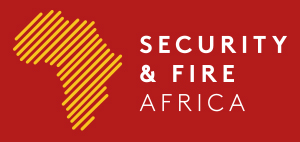07 Nov The gold standard in security practice
David J. Gill, Registrar, RCSP (Register of Chartered Security Professionals) looks at why more security professionals are working towards chartered status.
There are many professional disciplines that are widely recognised by Royal Charter such as engineering and accountancy. However, until 2011 when the Register of Chartered Security Professionals was created, there was no authenticated way of identifying or recognising a highly skilled and qualified individual practicing in one or more of the many different areas of security provision.
This was addressed by the Worshipful Company of Security Professionals which upon application via the Privy Council, was granted a Royal Charter to create the Register of Chartered Security Professionals (RCSP). The RCSP is operated and administered by The Security Institute, the leading professional security membership body in the UK; with governance assigned to the independent Chartered Security Professionals Registration Authority (CSPRA) chaired by Baroness Henig CBE.
The mission of the RCSP is to maintain and improve internationally-recognised standards of competence and commitment in all forms of protective security for the public benefit and to certify qualified practitioners in the field as Chartered Security Professionals (Registrants).
There is no requirement for an applicant seeking to become a Chartered Security Professional (CSyP), to be a member of any institute, association or security body. Whilst the RCSP originated and is administered in the UK, CSyP registration is open to any security professional wherever they are based. As of today, there are registrants located across 23 different countries including the Americas, Europe, Middle East, Africa, and Asia Pacific.
The first Chairman of CSPRA was Lord Carlile QC, an eminent barrister and former legal advisor to the UK government on terrorism legislation. It was Lord Carlile who when describing the essence of the Register, used the term ‘the gold standard in security practice’ that has since become synonymous with CSyPs and the Register.
The Register has been formally recognised by the Security Industry Authority (SIA), the UK’s Security Regulator and also by the Centre for the Protection of National Infrastructure (CPNI) and is increasingly regarded in both the public and private sector as the benchmark of security excellence and professionalism.
Competency requirements
As with all Chartered bodies, admission requirements are stringent. There are five key competency requirements: security knowledge, practical application, leadership, communication and personal commitment, and applicants need to evidence that they operate at a strategic level. There are two pathways for applicants, the ‘Standard Pathway’ which requires applicants to hold a degree in a security-related subject and can demonstrate at least five years’ experience with two years at Chartered equivalence. A second pathway is the ‘Individual Pathway’ which is open to applicants without a security-related degree but who can demonstrate ten years’ experience and five years’ operating at Chartered equivalence. Anyone contemplating applying to become Chartered can attend one of the regular monthly workshops to gain an in-depth understanding of the process and requirements, of which details are provided on the RCSP website. Free tutoring and guidance may also be provided to those expressing an interest and details can be obtained from the RCSP Administration team.
All Chartered Security Professionals agree to comply with a strict professional code of conduct and disciplinary code, and are mandated to demonstrate their continuing professional development each year. Holding professional Indemnity insurance is also a strict requirement, in common with other Chartered professional bodies.
Many potential applicants ask ‘what’s in it for me?’. This can be answered in a variety of ways and will naturally depend on the individual. For many, one of the primary benefits of being a Chartered Security Professional is that it enables them to operate confidently and equitably alongside other qualified professionals such as lawyers, doctors, accountants, engineers, architects and, indeed, all other Chartered professionals. Since gaining the post nominals of CSyP, many registrants have personally experienced much greater professional respect from peers, clients and authorities, including the law courts. Should they wish, registrants may also prefer to sign their work as Chartered Security Professional rather than Security Advisor or Consultant.
Other benefits registrants often remark on is access to an exceptional network of peers encompassing the vast spectrum of security expertise including risk and crisis management, technical solutions, and so much in-between. Registrants also report Chartered status bolstering their career prospects and commercial opportunities.
New launches
The Register is about to launch two exclusive sub-registers one listing those Chartered Security Professionals skilled in other languages and the other listing those with specialist expertise. The aim is to enable fellow registrants access to practitioner peers with other skill sets knowing they are safely dealing with a tested and experienced professional who has undergone the same professional assessment process they have.
For far too long those working in the security sector have failed to gain appropriate recognition. This was often exacerbated by poor availability of good training and resultant high standards. However, with a plethora of training and education programs and security qualifications, times are changing with the pinnacle of all this being the attainment of Chartered Security Professional.
All Chartered Security Professionals are listed on the RCSP website and further information can be found at www.charteredsecurityprofessional.org.




Sorry, the comment form is closed at this time.